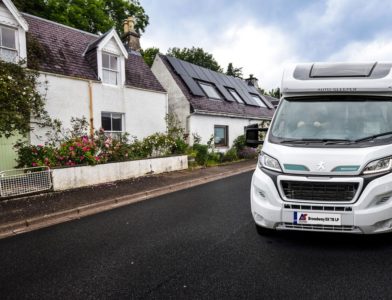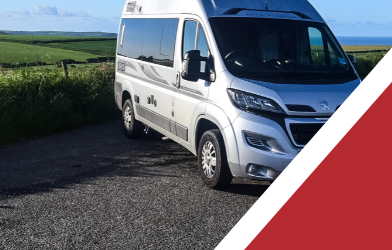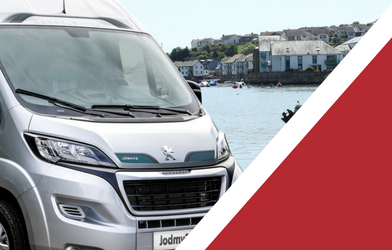The basic principles of motor insurance are fairly common to all kinds of vehicles. So, if you have experience arranging your car insurance, very similar rules will apply to the insurance for your motorhome.
Nevertheless, there are some important differences and issues that you may do well to consider – and we outline some of these in what follows.
The basics
By law, of course, as for any motor vehicle you must have at least third-party liability insurance when driving your motorhome on the road. In fact, current legislation relating to Continuous Insurance Enforcement (CIE), also requires you to have such insurance in place even if your vehicle is parked up off the road – unless you have completed the established statutory off-road notification (SORN) procedure with the DVLA.
Third-party cover means, essentially, that if anyone claims against you for damages or injuries arising from an accident involving your motorhome, there will be funds available to meet any court awards accordingly.
However, given the typically high value of most motorhomes, owners will usually prefer more comprehensive cover – that includes protection against such risks as the theft of the vehicle, fire damage to it or perhaps its serious damage in an accident. That additional form of cover is often added to the basic third-party protection required by law so that more comprehensive insurance is achieved.
Motorhome specifics
While the same basic principles hold true, your motorhome is not a car. It has significant differences from a car or even a van used for carrying goods, largely in terms of its typically expensive coachwork and potentially high level of interior finish and equipment.
Many motorhome owners might also have a lot of their own personal possessions with them when they are out and about on the road.
With those considerations in mind, your motorhome might become almost like a form of accommodation in your own home. In other words, you might want to ensure that your motorhome insurance policy also extends cover to all the belongings you customarily take with you or are already installed inside the vehicle on road trips you make.
You will undoubtedly want to think carefully about the type of replacement cover you might need for those internal possessions in the event of their loss or damage. In settlement of any claim, for example, some policies might offer a replacement at market valuation only whereas others may consider offering new-for-old.
With respect to any cover for your belongings, fixtures, and fittings in the motorhome, note also that many policies impose strict conditions on the types of items that can be left in your motorhome when you are not physically present in the vehicle.
Given the high value of motorhomes, it is not unusual to see policies also demanding that comprehensive GPS tracking devices are fitted to your vehicle.
Overall, it’s important to think carefully about your cover and to take advice if you are about to arrange insurance for a motorhome for the first time. Here at Derby Motorhomes, we will be only too pleased to discuss any of these subjects with you further.
GAP insurance
It may also be appropriate to make a special mention of the desirability of Guaranteed Asset Protection – or GAP cover as it is more commonly known.
If your motorhome is involved in an accident that results in its total loss, motor insurance policies will typically only pay out to the maximum of the vehicle’s depreciated value at that time. Depending upon the age and type of vehicle concerned, it’s possible that you may end up receiving less from your insurance policy than you still owe in any outstanding finance agreement on the vehicle.
GAP cover is a type of policy specifically aimed at bridging between these two figures.
Other insurance
Also, there are other additional aspects of motorhome insurance that may be worth considering – cover such as motorhome warranty, travel and health insurance, and motorhome breakdown insurance.
Insurance conditions
As a final reminder, it is always important to carefully read the conditions, restrictions, and exclusions incorporated in your motorhome insurance policy documents.
Contrary to some mythology, they do not exist to give your insurance provider wriggle room. In fact, they are there to make clear to the policyholder what you are getting for your money and the conditions with which you must comply to maintain the intended cover provided by your policy.
As we’ve mentioned before if you want to learn more, why not contact us for a discussion? We’re standing by waiting to help.




